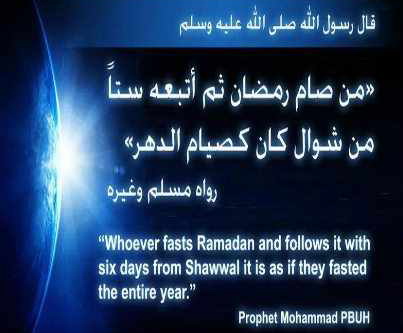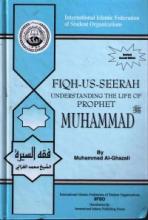The Prophet of Mercy Website
Muslim World League - Global Commission for Introducing the Messenger
The same night it rained on both sides. For the polytheists it obstructed further progress, whereas it was a blessing for the Muslims. It cleaned them and removed from them the stain of Satan. Allâh sent rain to strengthen their hearts and to plant their feet firmly therewith. They marched a little forward and encamped at the farther bank of the valley. Muhammad (Peace be upon him) stopped at the nearest spring of Badr. Al-Hubab bin Mundhir asked him, “Has Allâh inspired you to choose this very spot or is it stratagem of war and the product of consultation?” The Prophet (Peace be upon him) replied “It is stratagem of war and consultation.” Al-Hubab said: “This place is no good; let us go and encamp on the nearest water well and make a basin or reservoir full of water, then destroy all the other wells so that they will be deprived of the water.” The Prophet (Peace be upon him) approved of his plan and agreed to carry it out, which they actually did at midnight.
Sa‘d bin Mu‘adh suggested that a trellis be built for the Prophet (Peace be upon him) to function as headquarters for the Muslim army and a place providing reasonable protection for the leader. Sa‘d began to justify his proposal and said that if they had been victorious, then everything would be satisfactory. In case of defeat, the Prophet (Peace be upon him) would not be harmed and he could go back to Madinah where there were more people who loved him and who would have come for help if they had known that he was in that difficult situation, so that he would resume his job, hold counsel with them and they would strive in the cause of Allâh with him again and again.
A squad of guards was also chosen from amongst the Helpers under the leadership of the same man, Sa‘d bin Mu‘adh, in order to defend the Prophet (Peace be upon him) in his headquarters.
The Prophet (Peace be upon him) spent the whole night preceding the day of the battle in prayer and supplication. The Muslim army, wearied with their long march, enjoyed sound and refreshing sleep, a mark of the Divine favour and of the state of their undisturbed minds.
“(Remember) when He covered you with a slumber as a security from Him, and He caused rain to descend on you from the sky, to clean you thereby and to remove from you the Rijz (whispering, evil suggestions, etc.) of Satan, and to strengthen your hearts, and make your feet firm thereby.” [8:11]
That was Friday night, Ramadan 17th., the year 2 A.H.
In the morning, the Prophet (Peace be upon him) called his men to offer the prayers and then urged them to fight in the way of Allâh. As the sun rose over the desert, the Prophet(Peace be upon him) drew up his little army, and pointing with an arrow which he held in his hand, arranged the ranks.
Quraish, on the other hand, positioned their forces in Al-‘Udwat Al-Quswa opposite the Muslim lines. A few of them approached, in a provocative deed, to draw water from the wells of Badr, but were all shot dead except one, Hakeem bin Hizam, who later became a devoted Muslim. ‘Umair bin Wahab Al-Jumahi, in an attempt to reconnoiter the power of the Muslims, made a scouting errand and submitted a report saying that the Muslim army numbered as many as 300 men keen on fighting to the last man. On another reconnaissance mission he came to the conclusion that neither reinforcements were coming nor ambushes laid. He understood that they were too brave to surrender and too intent on carrying out their military duties to withdraw without slaying the largest number possible of the polytheists. This report as well as kindred relations binding the two belligerent parties together, slackened the desire to fight among some of the Quraishites. To counteract this reason-based opposition advocated by a rival of his, ‘Utbah bin Rabi‘a and others, Abu Jahl started an anti-campaign seeking vengeance on Muhammad’s followers for the Quraishites killed at Nakhlah. In this way, he managed to thwart the opposite orientation, and manipulated the people to see his evil views only.
When the two parties approached closer and were visible to each other, the Prophet (Peace be upon him) began supplicating Allâh “O Allâh! The conceited and haughty Quraishites are already here defying You and belying Your Messenger. O Allâh! I am waiting for Your victory which You have promised me. I beseech You Allâh to defeat them (the enemies).” He also gave strict orders that his men would not start fighting until he gave them his final word. He recommended that they use their arrows sparingly and never resort to sword unless the enemies came too close.
Abu Jahl also prayed for victory, saying: “Our Lord, whichever of the two parties was less kind to his relatives, and brought us what we do not know, then destroy him tomorrow.”. They were confident ththeir superior number, equipment and experience would be decisive. The Noble Qur’ân, with a play on the word, told them that the decision had come, and the victory — but not in the sense they had hoped for:
“(O disbelievers) if you ask for a judgement, now has the judgement come unto you and if you cease (to do wrong), it will be better for you, and if you return (to the attack), so shall we return, and your forces will be of no avail to you, however numerous it be, and verily, Allâh is with the believers.” [8:19]
The first disbeliever to trigger the fire of the battle and be its first victim was Al-Aswad bin ‘Abdul Asad Al-Makhzumi, a fierce bad-tempered idolater. He stepped out swearing he would drink from the water basin of the Muslims, otherwise, destroy it or die for it. He engaged with Hamzah bin ‘Abdul Muttalib, who struck his leg with his sword and dealt him another blow that finished him off inside the basin.
The battle had actually started. Protected by armour and shields, ‘Utbah bin Rabi‘a stepped forth between his brother Shaibah and his son Al-Waleed bin ‘Utbah from the lines of Quraish and hurled maledictions at the Muslims. Three young men of the Helpers came out against them: ‘Awf and Mu‘wwadh — the sons of Harith, and ‘Abdullah bin Rawaha. But the Makkans yelled that they had nothing to do with them. They wanted the heads of their cousins. Upon this the Prophet (Peace be upon him) asked ‘Ubaidah bin Al-Harith, Hamzah — his uncle, and his cousin ‘Ali (May Allah be pleased with him) to go forward for the combat. The three duels were rapid. Hamzah killed Shaibah, while ‘Ali killed Al-Waleed. ‘Ubaidah was seriously wounded but, before he fell, Hamzah fell upon ‘Utbah and with a sweep of his sword, cut off his head. ‘Ali and Hamzah carried ‘Ubaidah back with his leg cut off. He died four or five days later of a disease in the bile duct.
‘Ali was possessed of a deep conviction that Allâh’s Words were revealed:
“These two opponents (believers and disbelievers) dispute with each other about their Lord.” [22:19]
These verses were revealed in connection with men of Faith who confess their Lord and seek to carry out His Will (i.e. Muhammad ’s followers at Badr Battle), and men who deny their Lord and defy Him (the people of Quraish).
The duel was followed by a few more duels but the Makkans suffered terrible defeats in all the combats and lost some of their most precious lives. They were too much exasperated and enraged and fell upon the Muslims to exterminate them once and for all. The Muslims, however, after supplicating their Lord, calling upon Him for assistance, were made to hold to their position and conduct a defensive war plan that was successful enough to inflict heavy losses on the attackers. The Prophet (Peace be upon him) used to pray to his Lord ceaselessly persistently and day and night to come to their succour. When the fierce engagement grew too hot he again began to supplicate his Lord saying:
******






